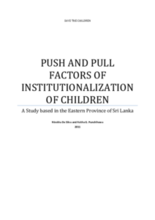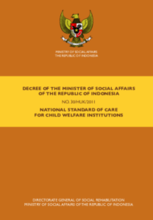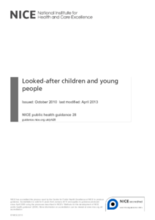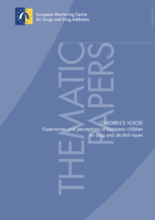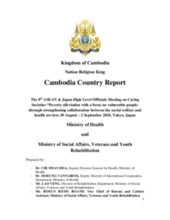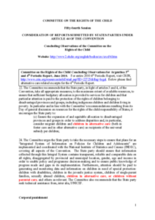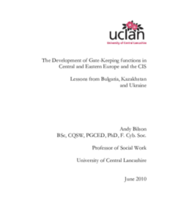Displaying 1331 - 1340 of 1511
This research on the institutionalization of children in the Eastern Province of Sri Lanka was carried out by Save the Children with the support of the Department of Probation and Children Care Services and National Institute of Social Development.
Indonesia’s National Standards of Care for Child Welfare Institutions is a crucial policy instrument, drafted in response to the recommendations of the United Nations Committee on the Rights of the Child, regulating the provision of alternative care for children.
This report examines the impacts of HIV on the care choices of children, exploring how HIV affects whether or not children can remain within parental care, and on the alternative care options open to them.
The aim of this guidance is to improve quality of life of looked-after children and young people in England, including their physical health, and social, educational and emotional wellbeing. It focuses on and encourages organisations, professionals and carers to work together to deliver high quality care, stable placements and nurturing relationships for looked-after children and young people.
The purpose of this paper is to give meaning and insight into some of the key drug and alcohol issues that affect children from the perspectives of the children themselves. Research shows that large numbers of children who are separated from their parents are particularly vulnerable to developing drug and alcohol problems. Special attention is paid throughout the report on children looked after by relatives, foster carers, and institutions.
A fact-finding report on the fleeing of juveniles from the Government Observation Home, Special Home and Children’s Home (Combined) for Boys at Berhampur under Ganjam District of Orissa on 21-22 September 2010
This report from the Cambodian Ministry of Health and Ministry of Social Affairs, Veterans and Youth Rehabilitation outlines the efforts of the Cambodian government to address the needs of vulnerable people.
In June 2010, the Committee on the Rights of the Child issued its Concluding Observations to countries reviewed during the Committee's 54th session. This brief summarizes the UNCRC observations regarding alternative care.
The focus of this thesis is the position of orphans, vulnerable children and orphanages in Ghana in relation to the ‘help’ they receive from western volunteers and NGOs.
This report looks at children who enter institutional care because of being without parental care, children with disabilities, child victims of abuse and children in conflict with the law. The aim is to identify key routes through the systems in order to understand the nature of the difficulties that lead children to be placed in institutions and thereby to be able to identify alternative strategies that will better support families and children.

